Features
The PRISM Interviews: Raymond Raposa‚ Ryne Warner, and PRISM Index Editor Jeffery Bowers
by Julia Marino | photography by Julia Marino
July 20, 2010
The PRISM Interviews: Raymond Raposa‚ Ryne Warner, and PRISM Index Editor Jeffery Bowers
by Julia Marino | photography by Julia Marino
July 20, 2010
page 2 of 4
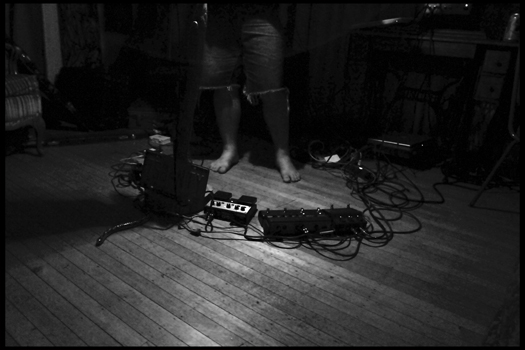
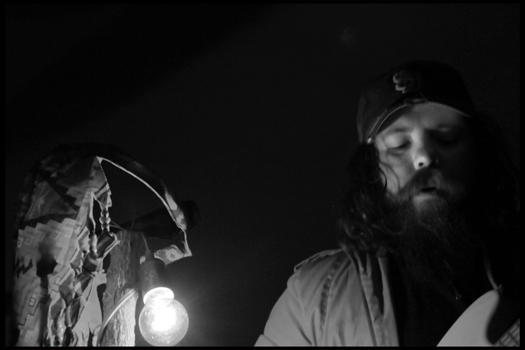
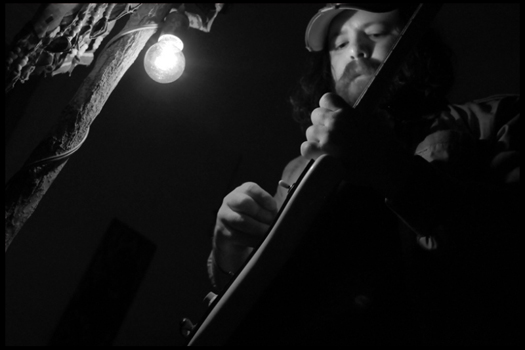
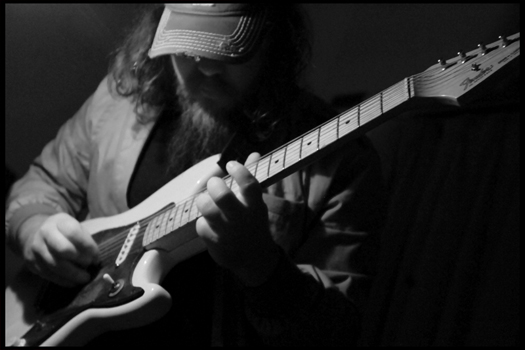
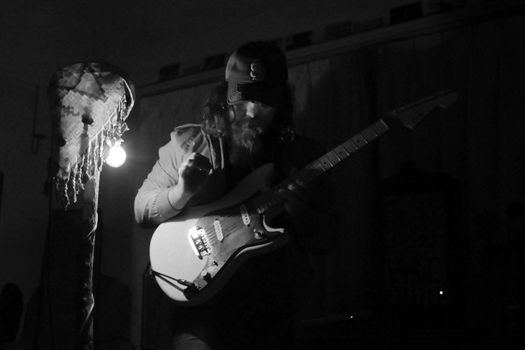
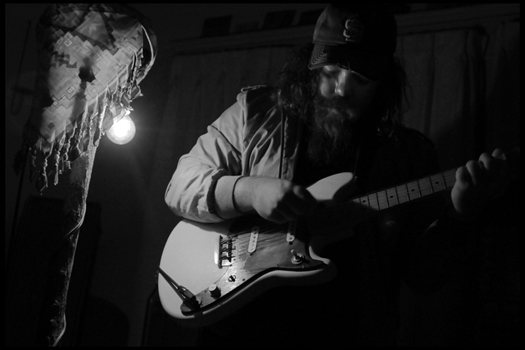
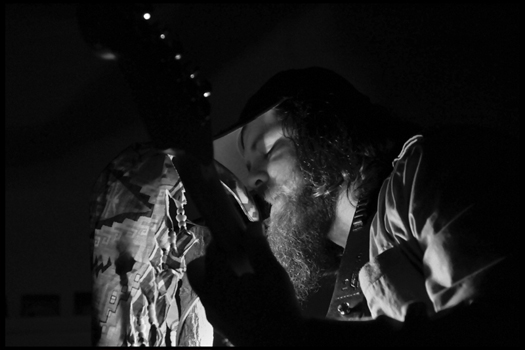
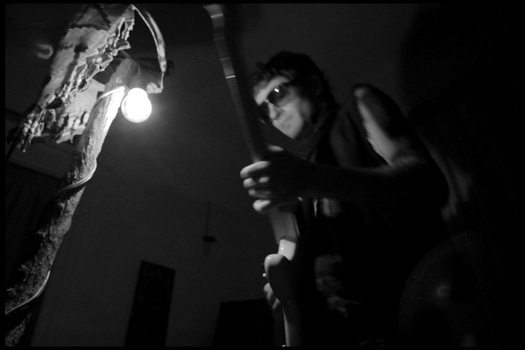
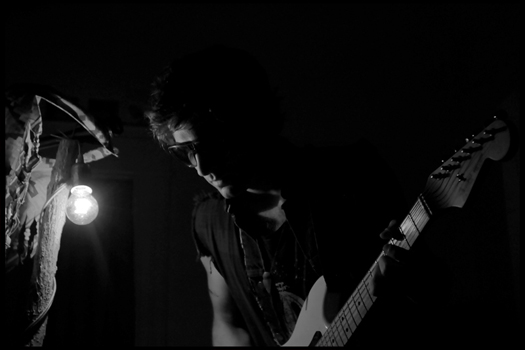
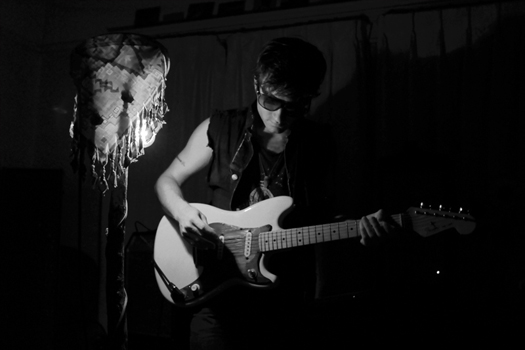
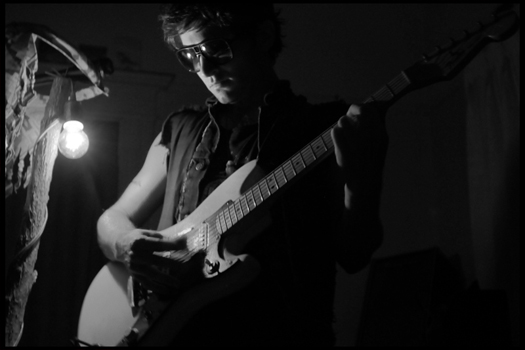
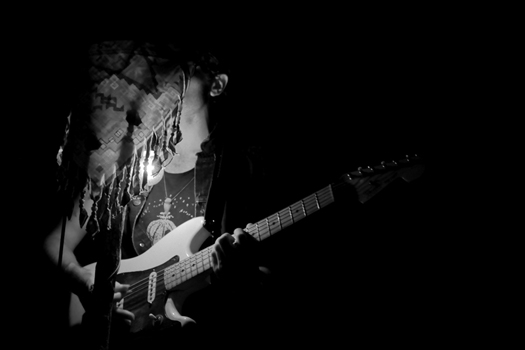
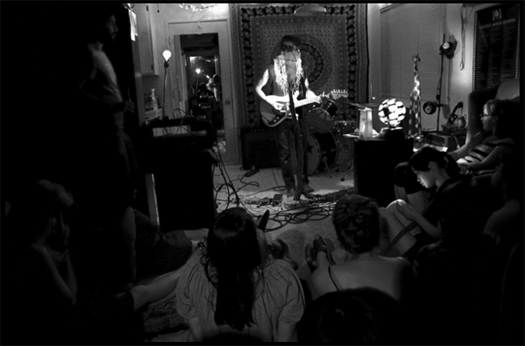
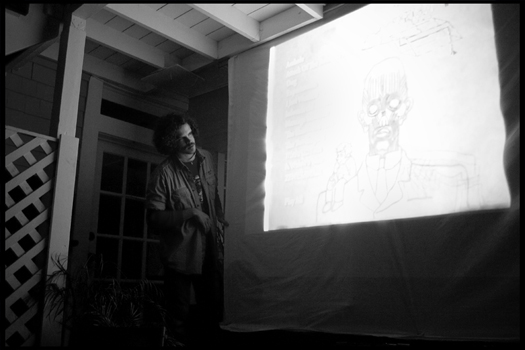
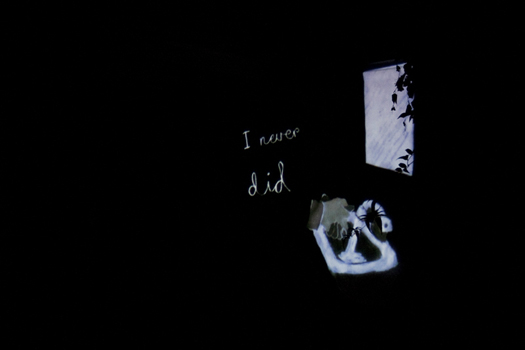
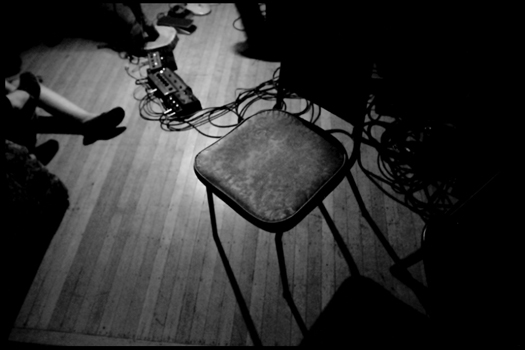
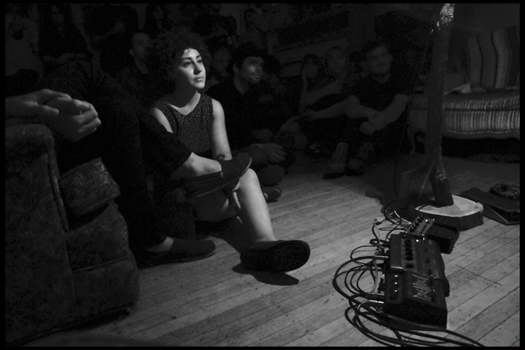
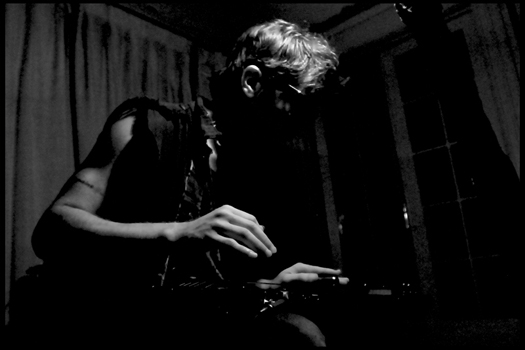
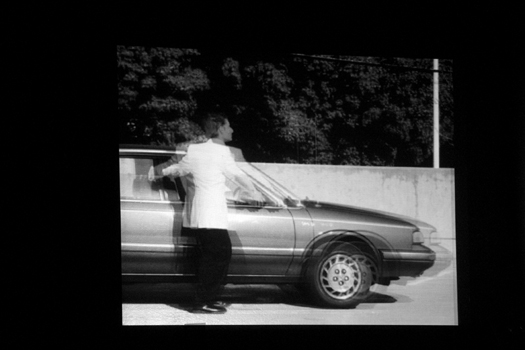
The funny part about it is I still can't get over how this project in some ways seems much bigger than what I intended. Because you know, I'd send out these weird emails saying, "Hey why don't you send this thing, 'blah blah blah,'" and people I never met would send stuff. And then some of my best friends, for whom I liked their work, would never get around to it, even though I was offering the same thing. I think more people should go beyond their comfort zone of their friends. If they really want to do something, then make contact, you know? If there's this guy that you really want to record with, then risk it. Try recording with this guy that you don't know. Something great might come out of that.
JM: How would you describe the types of artists that are featured in PRISM?
Jeffrey: Very independent artists in terms of where they play, what they play and who they are. Most of the people are solo acts. Even Ray plays with a band a lot of the time, but on the CD, it's a solo song. There's David Heumann from Arbouretum, which is a band. But he just gave me a guitar track that he did. All the musicians end up submitting solo work sort of accidentally.JM: It sees that PRISM has a very intimate, personal feel to it partly for that reason.
Jeffrey: I mean, when I set out, I set out to make a bond with all the people that I got in the compilation. And even still, I've been touring with the book. And so, I get to meet every single person that's in the book, and hang out with them and hand out a copy of this handmade object, which is something I'm not taking for granted. The fact that I get to travel and go to these different cities where these artists are, and say "Hey, you want to do a show? Here's this book that we made." And I get this hands-on connection. And hopefully that comes through in terms of how much effort was put in by everyone.
Jeffrey: I mean, when I set out, I set out to make a bond with all the people that I got in the compilation. And even still, I've been touring with the book. And so, I get to meet every single person that's in the book, and hang out with them and hand out a copy of this handmade object, which is something I'm not taking for granted. The fact that I get to travel and go to these different cities where these artists are, and say "Hey, you want to do a show? Here's this book that we made." And I get this hands-on connection. And hopefully that comes through in terms of how much effort was put in by everyone.
JM: Ray and Ryne, which of your songs were you most inspired to play during this west coast tour? What about them, or any one particular song, is significant to you during this time?
Ryne: It was pretty limited as what I could do. I tried to lean more heavily on my pre-recorded stuff. But usually there was one wild card. In Sacramento, I played lap steel, which I hadn't done before on this tour. And there was one song, "Some Will Live," that I didn't expect to be "the one," but then I felt people's reactions to it, and it became incredible to play.
Ryne: It was pretty limited as what I could do. I tried to lean more heavily on my pre-recorded stuff. But usually there was one wild card. In Sacramento, I played lap steel, which I hadn't done before on this tour. And there was one song, "Some Will Live," that I didn't expect to be "the one," but then I felt people's reactions to it, and it became incredible to play.
JM: The both of you are playing solo shows during this tour. How would you describe the difference between how you feel when you're performing with other people, versus when you're playing by yourself?
Ryne: It's like asking about the difference between masturbating and having an orgy. There are 13 people involved in this very intimate thing. Some people get off more than others. Yeah, maybe that is the perfect analogy. It's like getting a group of friends who are doing a meditation. Have you ever been part of a small yoga class versus part of a big one? It's totally different. You just pick up on that energy. There was one time in Portland, where the 13-piece band was playing around the periphery, trapping the audience inside. At one point, I just left, and the music was going on without me. It was like Frankenstein.
But on this tour, the audience was there to watch a performance. That's the hard thing about playing solo. As soon as you add another person on stage, people are more likely to stand up and engage. So playing solo is not the same energy as if I was with a band. It's peculiar as hell to me.
JM: Yeah, I get intrigued by the connection that an audience will have with a musician. Tell me more about what that's like for you on this tour?
Raymond: What others perceive is going through an artist, is not always what they're going through.
JM: People will have their own interpretation.
Raymond: Right.
Ryne: You just set out with intent. I got kind of exhausted and burnt out on presenting me and my feelings. Not only was it kind of draining, but I think I was operating under some bullshit assumption of authenticity. And just found it to kind of narrow-sited, like it's a thing to hide behind, where as long as I'm showing you my emotions, it's real.
JM: How did you come to the conclusion that it's bullshit?
Jeffrey: I told him.
(Extreme laughter ensues.)
Jeffrey: But, whatever emotion or mood you're in, you set that feeling for that night. And you're either going to do something that is going to wear you out, or it's going to be badass, or you're going to try and feel what the mood is and play off of that.
JM: So you play what really calls to you in that moment then?
Raymond: Very much. That's a lot of the fun of it. …Ryne's toured with me in a band, and it's rather half-hazard.Ryne: Yeah, he'll hand us a set list, but we'll be like "Yeah, sure. It's really cute that you wrote it down, but…" When you play blues shows for five people, you'll try out that shit, and you'll have that fearless nature like it doesn't matter. You're throwing yourself against the wave, and that's when the great shit happens. And for you to not trust that because you have a band and there's an audience there, and you're on a mission to do it "right," well, that's what a record's for. But live, we want to see you crash against the wave. I'm really riding that surf metaphor, eh?
related articles
Features: The Vermonters Wanted Me to Play Hank Williams: A Conversation with Michael Hurley
Blog: State of Mind is 4 Years Old Today!
Magazine: State of Mind - November/December 2007
Magazine: State of Mind - November 2004
More on: Raymond Raposa, Michael Hurley, Ryne Warner, PRISM, Ohioan, Jeffery Bowers, Castanets
Features: The Vermonters Wanted Me to Play Hank Williams: A Conversation with Michael Hurley
Blog: State of Mind is 4 Years Old Today!
Magazine: State of Mind - November/December 2007
Magazine: State of Mind - November 2004
More on: Raymond Raposa, Michael Hurley, Ryne Warner, PRISM, Ohioan, Jeffery Bowers, Castanets
new to state of mind
Shows: moe.
Shows: Yonder Mountain String Band
Shows: Grand Point North 2014
Shows: Catskill Chill 2014
Shows: moe.down 15
Shows: Gov't Mule
Shows: Umphrey's McGee
Shows: Newport Folk Festival 2014
Shows: Widespread Panic
Albums: Phish - Fuego
Shows: moe.
Shows: Yonder Mountain String Band
Shows: Grand Point North 2014
Shows: Catskill Chill 2014
Shows: moe.down 15
Shows: Gov't Mule
Shows: Umphrey's McGee
Shows: Newport Folk Festival 2014
Shows: Widespread Panic
Albums: Phish - Fuego
random awesomeness
Shows: Ray Davies
Blog: Win a Pair of Tickets to The Slip at Paradise in Boston on 12/27
Blog: MMW and Antibalas Together for Halloween Run
Shows: Dr. Dog
Albums: Marco Benevento - Me Not Me
Shows: Greyboy Allstars
Blog: Listen: American Babies - "California Calling"
Shows: Mountain Jam 2011
Shows: Trey Anastasio and Classic TAB
Shows: Marco Benevento Trio
Shows: Ray Davies
Blog: Win a Pair of Tickets to The Slip at Paradise in Boston on 12/27
Blog: MMW and Antibalas Together for Halloween Run
Shows: Dr. Dog
Albums: Marco Benevento - Me Not Me
Shows: Greyboy Allstars
Blog: Listen: American Babies - "California Calling"
Shows: Mountain Jam 2011
Shows: Trey Anastasio and Classic TAB
Shows: Marco Benevento Trio
